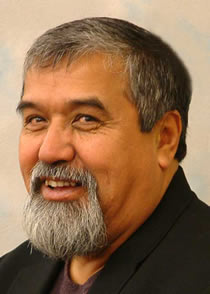
 |
Fate of head tax revenue undeterminedFebruary 1, 2008By Myrl Thompson - Pending legislation has reignited the controversy over how the cruise industry conducts business in Alaska. 
Representative Bill Thomas, R-Haines, has a House bill in the works that would establish an advisory committee to help determine how non-port-of-call communities affected by the cruise industry, would use their share of revenues from the recently passed cruise ship head tax. The head tax, instituted by a ballot initiative in 2006, set up the revenue stream by establishing a $50 tax on each commercial passenger on cruise ships visiting Alaska for more than 72 hours and that have 250 or more berths. A portion of that tax - $4 - goes to support the "Ocean Ranger" program, which administers on-board monitoring of water and waste disposal from the ships in Alaska waters. The remaining $46 dollars must be used for infrastructure and related operations in ports of call and other communities affected by the cruise industry. This restriction on the use of funds was due to legislation sponsored by U.S. Rep. Don Young (R-Alaska), then the chairman of the House Transportation and Infrastructure Committee. Young's legislation, (H.R. 3983) was incorporated into the "Maritime Transportation Security Act of 2002" (S.1214). The cruise industry lobby worked with Young's office to have the tax-spending restriction added to the bill. Cruise industry tax revenues can now only be for docks, harbor and street improvements and other similar projects related to the tourism industry. Seventy-five percent of the $46 dollars in revenue goes into the Commercial Passenger Vessel Tax (CPVT) account, which is used for projects in ports of call, in places like Skagway, Juneau, Ketchikan and Sitka, where many on the cruise lines dock the majority of the time. The remaining 25 percent of the tax goes into the Regional Cruise Ship Impact (RSCI) account, which is used to offset industry impacts in communities that are not ports of call - communities like Haines, Yakutat and even other road-system communities affected by tourism. Haines, for instance, gets many of the Skagway port-of-call tourists using its facilities when local tour operators book excursions there. In the first year of the new program, tax revenue has been collected and some has been distributed to ports of call. After that initial distribution, the remaining funds in the larger, or CPVT, account is about $24.8 million. The smaller RCSI account, which now holds about $11.8 million, remains undistributed, awaiting an appropriation by the Legislature. Here is where Rep. Bill Thomas' proposed legislation comes into play - how and where to distribute funds to communities that are affected by the cruise industry, but are not ports of call. According to Rep. Thomas' office, the governor's office has been approached about an administrative order for an advisory board that would deal with how non-port-of-call communities would use and distribute funds from the RCSI. But no action has been taken yet. Thomas' proposed legislation spells out the make-up of the advisory committee and details its objectives and duties. The Thomas bill is still in draft form and is not available at this time. However, Thomas' office indicated the make-up of the board would be as follows: Three mayors/designees from port-of-call communities; Thomas' proposed bill is not without contention. Critics of the proposed bill, like Gershon Cohen, who co-sponsored the cruise ship initiative, said he doesn't think the cruise industry should have a seat on the advisory board, where it could coerce approval of pet projects from small communities afraid to say "no." "I'm very concerned about the cruise industry's penchant for strong-arm politics," Cohen said. "Given how often they change their priorities and itineraries, which is always based on their bottom line, such influence would be wholly inappropriate." Cohen said an Alaska advisory board is no place for an industry based in Miami that registers its ships in the Bahamas. "Should (industry) be able to tell Alaskans how to spend the tax revenue Alaska raises from their industry after vehemently opposing the passage of the tax by popular vote?" Cohen asked. "Any legislation that would do this has no place in a democracy." Rep. Thomas stated publicly that putting cruise industry representatives on the committee might keep them from suing the state to block decisions on disbursement of the tax revenue. Concerns have also been raised about why Thomas' bill would allow three seats on the board to be occupied by port-of-call mayors when their communities draw their funds from a different account. Many of the impacted communities are dealing with entirely different situations than port-of-call communities. Expect more questions than answers when the Thomas bill hits the committee process. The proposed bill is still in draft form and may be changed dramatically before it has a chance of becoming law, if indeed it becomes law. Expect, too, that communities around the state will want to weigh in on these important decisions. For many of these communities, receipt of these funds could help make substantial improvements to their lives, mitigate numerous impacts and help address concerns that have gone largely unanswered in their part of Alaska. © AlaskaReport.com All Rights Reserved. |
Alaska Weather |